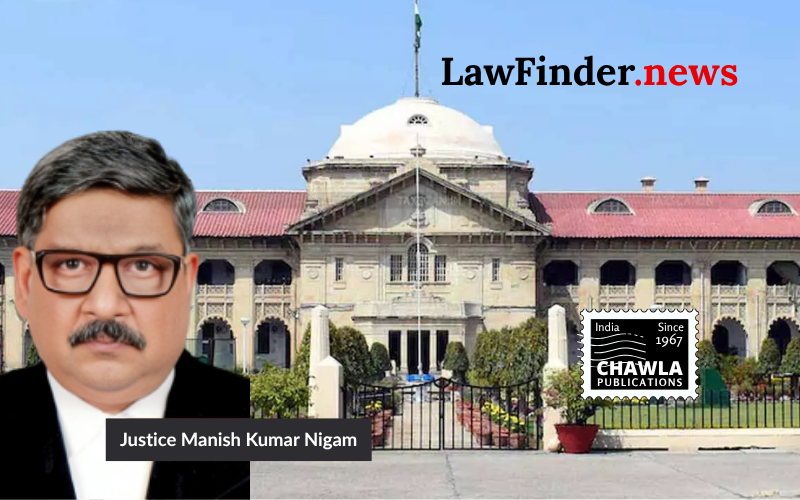In a significant ruling, the Allahabad High Court permitted amendments to a divorce petition, emphasizing the necessity of addressing new facts and grounds to avoid multiplicity of proceedings.
The Allahabad High Court, under the judgment of Justice Manish Kumar Nigam, has ruled in favor of allowing amendments to a divorce petition even after the framing of issues. This decision comes from the case of Chitranshi v. Rajnarayan Tripathi, where the petitioner challenged the order of the Principal Judge of the Family Court, Hamirpur, which permitted amendments to the divorce petition under Order VI Rule 17 of the Civil Procedure Code (CPC).
The case stems from a divorce petition filed by the respondent under Section 13 of the Hindu Marriage Act, 1955, citing grounds of desertion and cruelty. The petitioner opposed an amendment application filed by the respondent, which sought to introduce new facts that allegedly came to light during the trial process. The Family Court had allowed these amendments, leading to the current challenge.
The High Court's decision reinforces the principle that amendments in pleadings can be permitted after the commencement of a trial if the court is satisfied that despite due diligence, the party could not have raised the matter earlier. Justice Nigam emphasized that mere framing of issues does not signify the commencement of the trial, thereby allowing for amendments to ensure a comprehensive adjudication of disputes in a single proceeding.
Justice Nigam referenced several precedents, including the Supreme Court's ruling in Mohinder Kumar Mehra v. Roop Rani Mehra, to underline that amendments are permissible if they relate to facts that emerged after the initial filing. This approach aims to prevent the unnecessary multiplication of legal proceedings and ensures that all relevant issues are addressed within one case.
The judgment clarifies that the introduction of additional grounds for divorce, even if it involves a change in the cause of action, is not prohibited under the Hindu Marriage Act, 1955. It further stated that multiple grounds for divorce could be addressed in a single petition to avoid repeated litigation, thus reducing the burden on the judicial system and the parties involved.
The ruling directs the Family Court in Hamirpur to proceed with the divorce case expeditiously, ensuring that both parties have the opportunity to present their evidence and arguments. This decision underscores the court's commitment to facilitating the resolution of matrimonial disputes efficiently while ensuring justice is served.
Bottom Line:
Amendment in pleadings can be allowed even after framing of issues or commencement of the trial, provided the court is satisfied that the party could not have raised the matter earlier despite due diligence, and it is necessary for determining the real questions in controversy.
Statutory provision(s): Civil Procedure Code, 1908 Order VI Rule 17, Hindu Marriage Act, 1955 Section 13
Chitranshi v. Rajnarayan Tripathi, (Allahabad) : Law Finder Doc Id # 2782378




